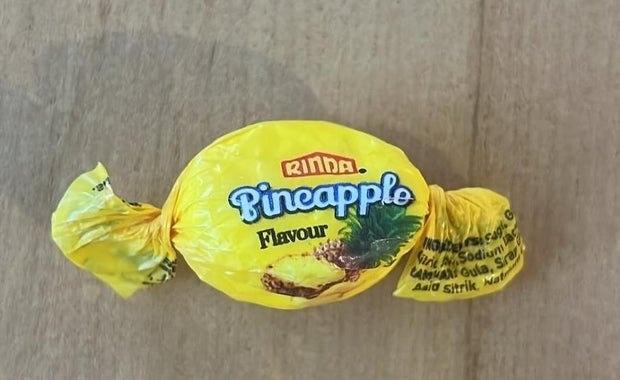Pineapple candies distributed by a New Zealand charity were found to contain “potentially lethal levels of methamphetamine,” police said on Wednesday, sparking an urgent campaign to remove the candies from the streets.
A child, a teenager and a charity worker have already been hospitalized after trying the candy.
The Auckland City Mission
Although none of those affected have become seriously ill, police have launched an investigation and are trying to locate up to 400 other people who may have received the candy.
“We need to catch them as quickly as possible,” said Detective Inspector Glenn Baldwin, adding that 16 of the candies have been found so far.
Police suspect that the drugs may have been packaged by smugglers or dealers in the characteristic yellow “Rinda” packaging to avoid detection.
They were then presumably donated to a poverty alleviation charity, the Auckland City Mission, which inadvertently distributed them through a food bank.
“Drug importation is a complex business and organised crime groups use a range of measures and techniques to evade law enforcement – not just in New Zealand but around the world,” Baldwin said.
The child and teenager who were taken to the hospital after tasting and spitting out the candy are both doing well, Baldwin added.
The charity worker was also treated for symptoms consistent with methamphetamine use, but was later discharged.
The New Zealand Drug Foundation said a test sample of an innocuous-looking white candy in a bright yellow wrapper indicated that it contained methamphetamine.
According to foundation spokeswoman Sarah Helm, the candies tested contained about three grams of meth – a hundred times more than the dose usually taken by consumers.
“Swallowing that amount of methamphetamine is extremely dangerous and can lead to death,” Helm said.
She urged people who received sweets from the Auckland charity not to eat them. “We don’t know how widespread it is,” she stressed.
Malaysian confectionery maker Rinda Food Industries said its brand image had been “abused” and that it “does not tolerate the use of illegal drugs in our products.”
“Our company is committed to ensuring that our products meet the highest safety and regulatory standards,” it said.
Helen Robinson of the Auckland City Mission said the organisation was “devastated” by the news.
Her organization estimates that up to 400 people may have received the affected sweets in a food parcel.
So far, eight different families have been affected, she said. In one case, a mother gave her child one of the candies, which then immediately spat it out.
Robinson said she was told the heavily contaminated candies tasted “sharp and disgusting.”
“It is enough to just touch or lick the substance very lightly and you will be deeply affected,” she warned.
A contaminated candy was taken for testing when a person felt strange after eating it and noticed a bitter taste.
Methamphetamine can cause chest pain, rapid heartbeat, seizures, delirium and loss of consciousness, warned the Drug Foundation.
Helm told Radio New Zealand it was common for drug smugglers to hide illegal narcotics in the form of food.
“We suspect that someone did not intentionally try to poison children,” she said.


